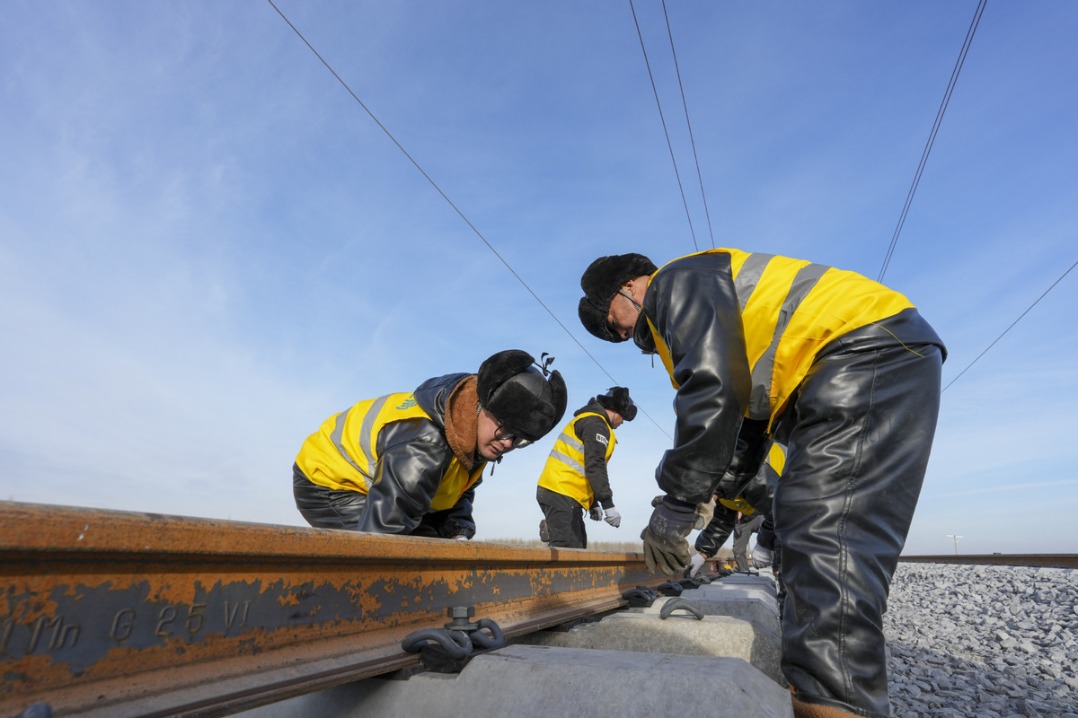Older migrant workers to be offered more assistance to find suitable new jobs


In March, a news report about migrant workers made a splash on Chinese social media.
Workers' Daily reported that many places, such as Shanghai and Shenzhen in Guangdong province, had issued orders to remove older migrants from construction sites because of safety concerns.
In fact, Shanghai started reducing their presence as early as 2019, when men age 60 and older and women age 50 and older were barred from working in construction. Moreover, men older than 55 and women older than 45 cannot be assigned physically demanding tasks, such as working high above the ground or deep in a mine.
Although well-intentioned, the policy met with mixed feelings from those facing imminent job losses.
"I'm still strong, so why am I not allowed to work?" one man complained in an interview with the newspaper.
Another interviewee was also critical, but he expressed understanding: "I am old and physically I am not supple, and if an accident did happen my family would be ruined."
Construction sites have long been employing large numbers of men approaching the legal retirement age of 60.
Though they may come from different regions, they share stark similarities: toiling far from their home villages; inadequately trained to work in other industries; and being the main breadwinner of their extended family.
Although many are entitled to a rural pension when they retire, the urban-rural two-track pension fund system means the sum would be meager, especially if their children are still attending college.
For decades, rural migrants have fueled China's urbanization process by building properties and factories on the edges of the nation's fast-expanding cities.
In April, the National Bureau of Statistics said the average age of China's 292 million migrant workers was 41.7 in 2021, a year-on-year rise of 3.6 months.
Meanwhile, the proportion of workers age 50 and older rose by 0.9 percentage points to 27.3 percent in 2021. As these people get older and find it harder to concentrate, laborious construction jobs, which often involve strict safety protocols, are becoming increasingly dangerous for them to undertake.
Official data show that in 2018, only 1 percent of Shanghai's construction workers were older than 60, but those workers accounted for 15 percent of deaths related to construction accidents.
Shanghai was one of several cities to provide support to help older workers develop new skills that would allow them to move into less physically demanding jobs.
However, the one-size-fits-all approach used in some places has barred such workers from being employed altogether, worsening their already cash-strapped lives.
Encouraging rural residents to seek better-paying city jobs has been among the major measures used by central authorities over the past decade to curb rural poverty, and it will also be used in the years to come to vitalize the countryside.
For example, authorities in Yunnan province, a formerly impoverished area, said last month that they had launched a 100-day campaign to help 15 million rural residents work outside their hometowns. Among them, more than 3.8 million worked outside the province.
Banning older migrants from working threatens to push many to the brink of re-impoverishment, experts said.
In November, five central government agencies — including the Ministry of Human Resources and Social Security, the Ministry of Agriculture and Rural Affairs and the National Administration of Rural Vitalization — published a guideline banning local authorities from removing older workers solely on the basis of age, and encouraged them to offer employment services to those in need.
As part of reform targeting the urban-rural hukou, or household registration system, which usually bars out-of-towners from enjoying local public services, the paper called for localities to offer legal consultations over labor disputes and allow migrants to claim unemployment benefits locally.
- China urges Japan to punish perpetrators of attack on Taiwan compatriots
- New soccer pitch inspires girls at Ningxia primary school
- The wall of silver cups: A tribute to courage and gratitude
- Chinese scientists develop artificial tongue to measure spiciness
- Lai's actions reveal flattery of Japan and betrayal of Taiwan, mainland says
- Tsinghua introduces comprehensive framework for AI use in education





































